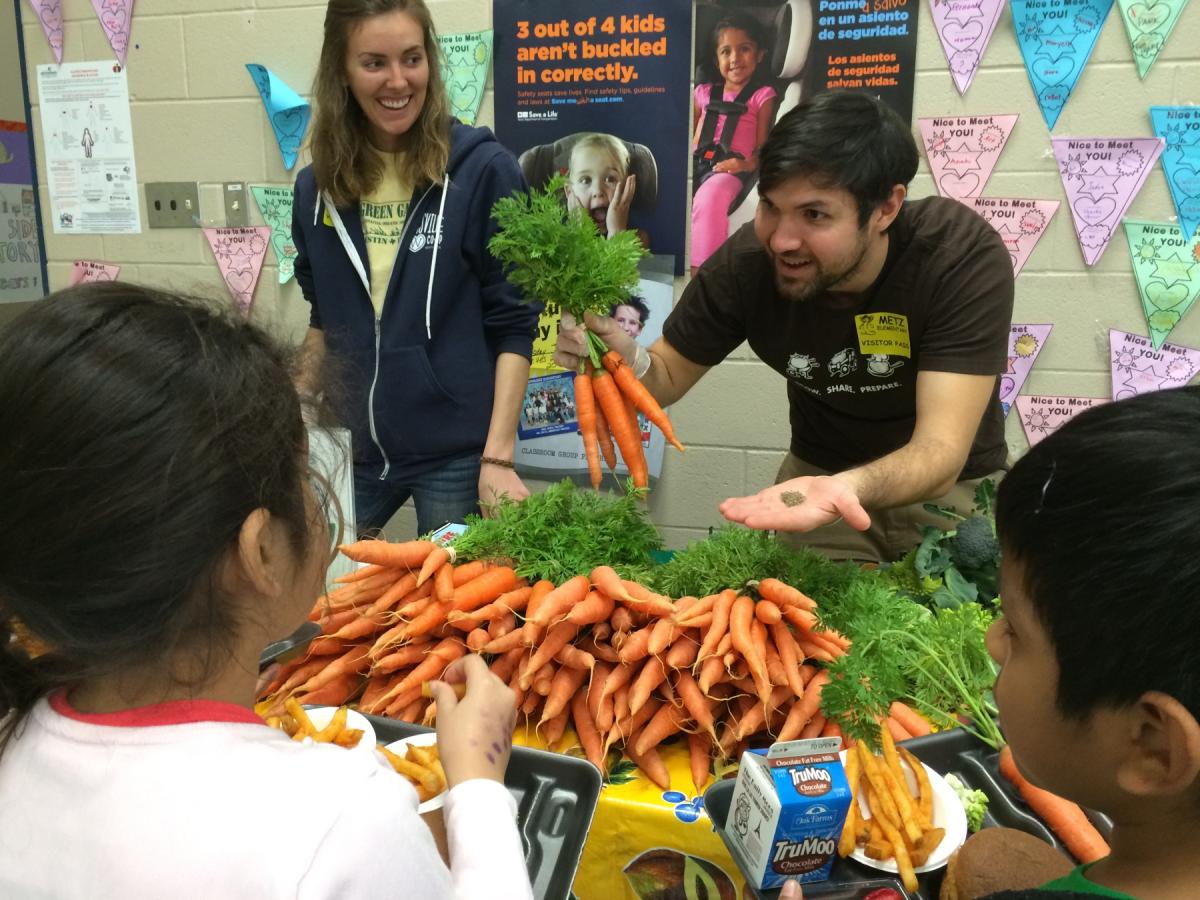Sponsored Post – from the City of Austin Office of Sustainability
Food production in Central Texas is decreasing rapidly as farmland is lost to development, the rising average age of farmers reduces their ability to work, and income for farm labor remains below the poverty level. Today, less than one percent of the food that is consumed in Austin is produced locally. With the population of Austin growing by approximately 20,000 each year, that means less fresh food produced locally for everyone.
Some of the other negatives that come from less readily available local food include:
-
A weakened local economy.
-
Less viable entry-level jobs in the farming economy that support a living wage.
-
Increased health risks for many in Austin who already don’t eat the recommended daily allowance of fruits and vegetables.
-
A larger carbon footprint and decreased resilience to climate impacts due to shipping food from farther away.
And while there have been many advances in labeling and certification to help consumers choose foods that are healthier and better for the environment, such as organic, free-range, and fair trade, it’s still tough to know exactly where this food comes from or how it was produced.

In an attempt to address these challenges, the Office of Sustainability is piloting a program that leverages institutional food purchasing to increase demand for local food that is produced sustainably. We’ve partnered with the Center for Good Food Purchasing, which offers a national, metrics-based, flexible framework to help cities and other public institutions transform the way they purchase food by creating a transparent and equitable food system framework built on five core values:
-
Supporting local economies
-
Health
-
Environmental sustainability
-
A valued workforce
-
Animal welfare
Three major entities in Austin that have a combined annual food purchasing budget of $24 million and the responsibility for preparing more than 100,000 meals each day have joined this pilot effort – the University of Texas at Austin’s Division of Housing and Food Services, the Austin Independent School District, and the Austin Convention Center. Their goals are to:
-
Provide a model for other local institutions to adopt, further aggregating demand for sustainable food.
-
Improve air, water, and soil quality, as well as healthy conditions for farm animals, thereby increasing community resilience.
-
Reduce the number of Texas farmers eligible for food stamps by increasing wages and farm income.
-
Promote fair labor values and the Equitable Food Initiative to ensure that farm employees are paid living wages and follow health and safety regulations.
-
Encourage the diversion of food waste, keeping valuable nutrients out of the landfill.
-
Ensure better access to healthy food, specifically for children in low-income communities who depend on school meals to provide the majority of their dietary needs.
These three organizations worked with the Center for Good Food Purchasing to complete baseline reports of their purchasing practices, identify areas for improvement, and set goals for future outcomes. The reports were then shared with each other to encourage collaboration, sharing of best practices and insights, and to broaden access to helpful supplier and vendor data.
Austin is one among several participating cities nationwide who have collectively shifted over $500 million in public food dollars to vendors that reflect the good food purchasing values. We’re excited to continue our work with these institutions and bring more organizations on board to strengthen our local food system!
Please note – editorials and sponsored posts are written by guest writers to inform and educate the community on a variety of different viewpoints, as well as to share information about local eco-friendly businesses and organizations. However, they do not necessarily reflect the opinions of the Austin EcoNetwork.

